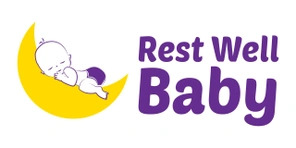Blog

What Is A Dream Feed
The Dream Feed Debate: A Gentle Sleep Coach's Perspective
As a pediatric sleep coach, one topic that frequently comes up with parents of young babies is the "dream feed." This practice, typically involving offering a milk feed (breast or formula) to a sleeping baby sometime between 10 pm and midnight, is often suggested as a way to "top them up" and potentially extend their longest stretch of sleep overnight. But is the dream feed right for your baby? Let's explore the pros, cons, and important considerations.
The primary appeal of the dream feed is the hope of a longer, more consolidated sleep period for both baby and parents. The theory is that by providing extra calories in the late evening while your baby is already asleep, you can delay their first hunger-induced wake-up. For exhausted parents, this extra hour or two of uninterrupted sleep can feel like a lifeline.
However, like many aspects of infant sleep, the dream feed isn't a one-size-fits-all solution. While some babies seem to benefit, others may not, and in some cases, it can even be counterproductive to establishing healthy sleep habits in the long run.
Potential Benefits of the Dream Feed:
Potentially longer initial sleep stretch: For some younger infants who are still taking frequent feeds, a dream feed might indeed push their first significant wake-up a bit later.
Peace of mind for parents: Knowing you've offered a feed before you go to bed can alleviate some parental anxiety about nighttime hunger.
Convenience for breastfeeding mothers: It can sometimes allow for a comfortable feed before a longer sleep period for mom.
Potential Drawbacks and Considerations:
Disrupting natural sleep patterns: Gently rousing a sleeping baby, even minimally, can disrupt their natural sleep cycle. This might lead to more fragmented sleep overall for some infants.
Not addressing the root cause of night wakings: Frequent night wakings aren't always solely due to hunger. They can be related to sleep associations, discomfort, developmental leaps, or simply being in a lighter stage of sleep. The dream feed doesn't address these other potential causes.
Calorie intake regulation: Babies are generally good at regulating their own milk intake. Offering a feed when they aren't actively demanding it might interfere with their natural hunger and fullness cues.
A Gentle Approach to the Dream Feed:
If you're considering a dream feed, here are some gentle guidelines to keep in mind:
Timing: Offer the feed ideally before you go to bed (around 10-11 pm).
Gentle approach: Try to keep the environment dim and quiet. Avoid fully waking your baby. The goal is for them to feed somewhat passively.
Listen to your baby: If your baby consistently refuses the dream feed or seems more unsettled after it, it might not be the right approach for them.
Age and development: As your baby gets older and their nighttime sleep stretches naturally lengthen, the need for a dream feed typically diminishes.
Focus on daytime feeds: Ensure your baby is getting adequate calories during the day to support their growth and development.
Observe and adjust: Pay close attention to your baby's sleep patterns and overall well-being. If the dream feed isn't leading to longer stretches of sleep or seems to be causing more disruptions, it's okay to reconsider.
My Gentle Recommendation:
Ultimately, the decision of whether or not to implement a dream feed is a personal one. There's no right or wrong answer that applies to every baby. Instead of feeling pressured to do it, I encourage you to consider your baby's individual needs, their sleep patterns, and your own intuition.
Focus on establishing healthy sleep foundations, including a consistent bedtime routine and an appropriate sleep environment. If your baby is consistently waking frequently out of genuine hunger, addressing their daytime feeding schedule and ensuring adequate caloric intake might be a more sustainable long-term solution than relying solely on a dream feed.
If you're unsure whether the dream feed is right for your little one or are struggling with night wakings, it's always wise to speak with your pediatrician and, if applicable, a lactation consultant. They can provide guidance based on your baby's individual health and feeding needs. Following those important conversations, gentle sleep coaching can then offer personalized guidance and support to help you find the most appropriate and sustainable solutions for your family's sleep. Together, we can work to understand your baby's unique needs and develop a plan that fosters healthy sleep habits.
If you're facing challenges, please feel free to reach out to book your 30 minute Sweet Dreams Starter call to learn how I can help your family get the gift of sleep.
Yours in sleep,
Tracie / Rest Well Baby
www.restwellbaby.com
Tracie Kesatie is a Certified Gentle Sleep Coach dedicated to helping families with little ones 0-10 years of age achieve a restful night's sleep.
Disclaimer: This article provides general information and is not intended as medical advice. Always consult with your pediatrician for any concerns about your child's health.
Blog





